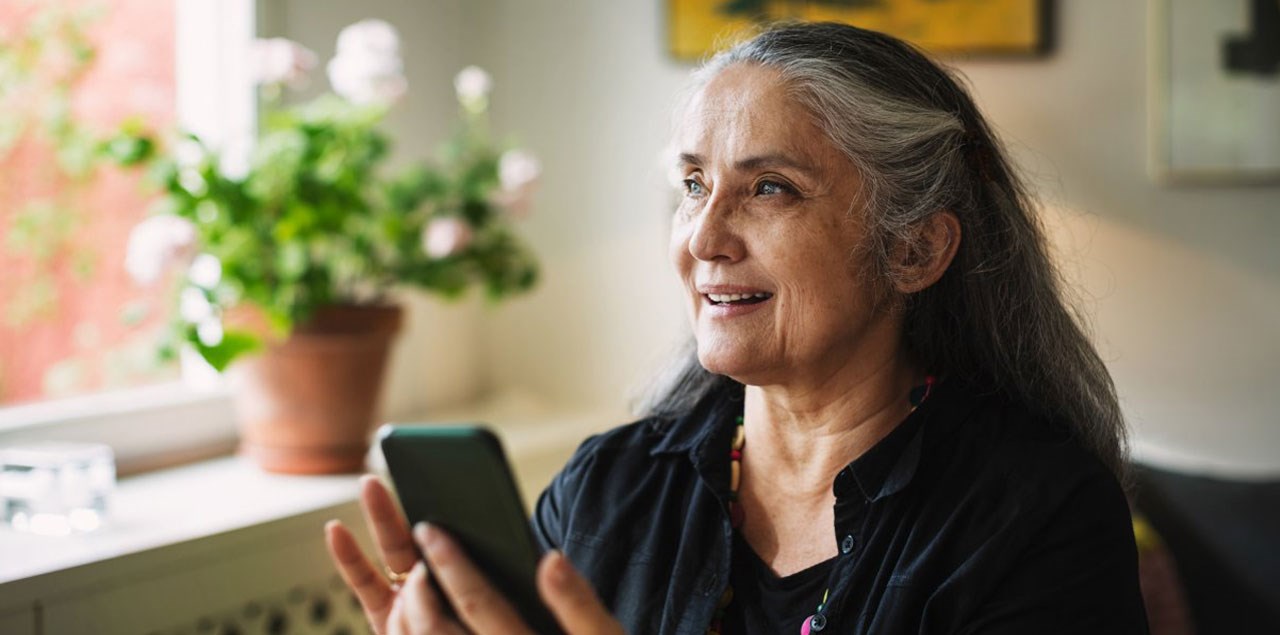Patient support goes beyond physical symptoms

Beyond the medicine: MS patients need emotional and psychological support in their everyday lives.
Effects of MS go far deeper than the physical symptoms
“I love this department. We make a positive impact in the lives of thousands of people.” Amanda Fernandes is in charge of the patient support program (PSP) TevaCuidar in Brazil and Argentina. And she wants everyone to know about it.
TevaCuidar is the new name for PACO, a Brazilian PSP that began in 2003, and was originally designed to offer help and support for patients taking medication to treat multiple sclerosis (MS). Amanda joined the program when Teva arrived in Brazil and has become progressively more involved in shaping it since 2006. “The program began,” Amanda explains, “because we recognized that people living with MS required not just disease awareness material and information, but accompanying support in their everyday lives, too.”

A diagnosis of MS is a life-changing experience, and the effects of it go far deeper than the physical symptoms, says Amanda. “These patients are people who really need attention across a range of issues, including emotional and psychological support. Explaining how to take care of themselves medically by administering their drugs was only the first step.”

When Teva came to Brazil in 2006, it expanded with a dedicated team of healthcare professionals working in the PSP to meet patients’ needs. “The program became more professional,” Amanda recalls. “We changed the way we contacted patients and the support materials improved. Once we were under the Teva umbrella, the way we treated patients was part of a global outreach program.”
Teva quickly realized that patients benefited most from the help provided by the PSP when the patients established a mutual trust with the professionals supporting them. “When patients have a close relationship with the professionals – the nurses, the pharmacists – who are assisting them,” Amanda says, “they become more confident. The PSP professionals noticed the positive attitude of the patients towards coping with MS in their lives.
“We had a call center as part of the program, but I wanted to take it further,” Amanda says. “Within Teva, we discussed the importance of providing patients with the best possible service, so we decided to employ people we could depend on to do home visits, rather than agency nurses. Using outsourced nurses posed issues due to high turnover and lack of connection to the patients. Teva hired a group of specialized professionals in 2015, upgrading the team from three to 13 healthcare specialists.
“We also decided to train the team very thoroughly, not only in the scientific and technical parts of their jobs, but also in motivational interventions and how to address topics of interest with patients. I am very proud of this team. The passion and commitment the PSP team has for their job and interactions is reflected in their way of doing things. You know when people have so much love for what they are doing? The nurses are all like that.”
The change in the patients was remarkable, Amanda says. “The most important thing is that they became more confident and, as a result, more likely to adhere to their courses of treatment. The more they understand about their illness and how it affects them, the more they understand the benefits of regular medication.
“The patients appreciate not only what the treatment is, but why it is important. Ultimately, they learn to take responsibility for their own wellbeing. It is amazing to see how the home visits have impacted their lives, something we as a PSP hear all the time; it is so moving and rewarding for us.”
The success of the program in Brazil has been supported by Teva’s dedicated sales and marketing team. “They understand the importance of the TevaCuidar method as part of a holistic approach to help MS patients,” Amanda says, “and as a multi-disciplinary team we have worked hard to make sure that healthcare professionals know about the transformation and the benefits of TevaCuidar, too.”
So striking has been the success of the patient support program that Teva now plans to extend its remit to cover other illnesses in addition to MS. “We changed the name from PACO to reflect the new approach, but also because we wanted Brazilian patients to know about Teva and what we really do – which is to care about people,” Amanda says.
The new name and focus will also come with the very best in new technology, in addition to the established call center. “We have launched a new webpage (tevacuidar.com), and we will shortly launch a new app with the same name, which will allow us to bring even more technology to our patients, so they have new ways of contacting us and keeping us appraised of their situation.”
The fresh approach is sure to appeal to today’s connected generations, but the aim of using technical solutions is to simplify the process of staying in touch for patients, says Amanda. “It’s all about improving the service we offer and making the best use of the amazing technology that’s available to us today.”
NPS-ALL-NP-00023 October 2018






